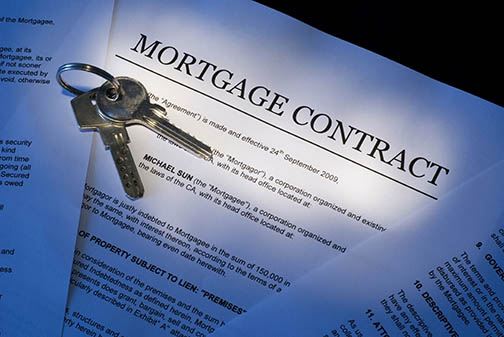Are You ‘Mortgage Pre-approval Worthy’? Learn How to Assess Your Finances in 10 Minutes
 Finding the right home and the right mortgage can take a lot of time and energy, so it’s important to consider whether you’ll be prepared for approval before diving into the process. Whether you’ve had some financial setbacks or you just want to have an idea ahead of time, here are some ways to quickly determine if you’ll be pre-approved for a mortgage.
Finding the right home and the right mortgage can take a lot of time and energy, so it’s important to consider whether you’ll be prepared for approval before diving into the process. Whether you’ve had some financial setbacks or you just want to have an idea ahead of time, here are some ways to quickly determine if you’ll be pre-approved for a mortgage.
Do You Have A Down Payment?
You may have heard that the ideal down payment amount is 20% of the cost of the home, but this doesn’t mean you have to have this amount. However, it is important that you have a significant chunk of change put away so that it can signal to the lender that you’re financially sound and will be able to come up with your monthly payment. A down payment will not only minimize the amount of money you owe the lender each month, it will also show that you know how to save and can be trusted with a significant financial investment.
Determine Your Credit History
Many potential homebuyers have financial hiccups in their history, but it’s how they’re dealt with that determines the future. While you may have considerable issues getting a mortgage approved if you’re not paying your minimum payments on time and have debt, by making this change, you can have a positive impact on your credit history in a matter of months. You may also want to get a copy of your credit report to ensure there are no errors that have adversely impacted your score.
Do You Have A Solid Employment History?
It’s very important to have a solid work history in the event that you’re applying for a mortgage, as this will signal to the lender that you have the funds to make your monthly payment. Keep in mind that it’s good to have at least 2 years of solid employment under your belt, and you’ll need to provide paystubs. If you’re self-employed or your recent job opportunities have been sporadic, this can cause issues with getting pre-approved.
It can take a lot of time to find the right house and the right lender, but if you have a solid history of employment and a sizeable down payment you’re well on your way to pre-approval. If you’re preparing for purchasing a home and would like to learn more, your trusted mortgage professionals for more information.

 There are so many details involved in the mortgage process that you may not be aware of what pre-approval is if you’ve just entered the market. However, pre-approval assesses your ability to make monthly mortgage payments and can be an important first step in the home-buying process. If you’re currently contemplating a home purchase, here’s why you may want to consider pre-approval first.
There are so many details involved in the mortgage process that you may not be aware of what pre-approval is if you’ve just entered the market. However, pre-approval assesses your ability to make monthly mortgage payments and can be an important first step in the home-buying process. If you’re currently contemplating a home purchase, here’s why you may want to consider pre-approval first. If you have a good credit history and are prepared to invest in a home, you may be feeling pretty confident about the mortgage process. However, it’s important to be aware that there are things that can have a negative impact on your application. Whether you’ve just submitted your documents or are getting close to it, here are some things you may want to avoid.
If you have a good credit history and are prepared to invest in a home, you may be feeling pretty confident about the mortgage process. However, it’s important to be aware that there are things that can have a negative impact on your application. Whether you’ve just submitted your documents or are getting close to it, here are some things you may want to avoid.